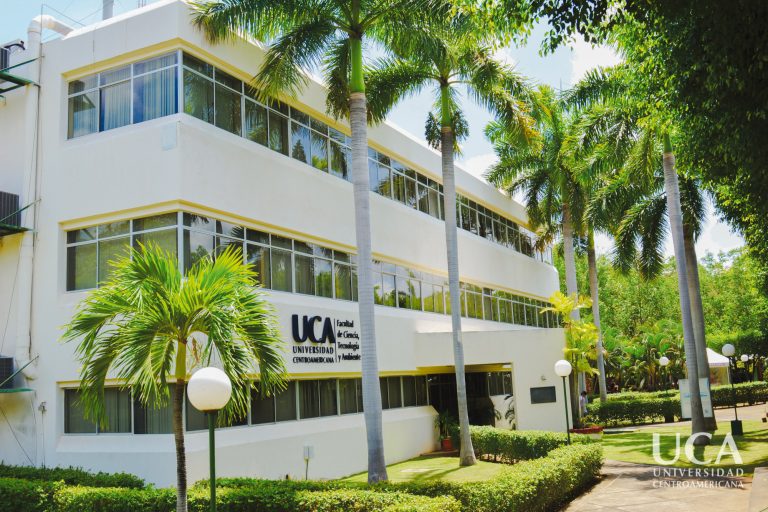17 de agosto 2023

Children of Exile: The Births “Sowing Hope” in the Camp of Nicaraguan Farmers

PUBLICIDAD 1M
PUBLICIDAD 4D
PUBLICIDAD 5D
“It is the final blow that had been planned for a long time,” says an academic expert. With the UCA, 27 universities have been confiscated

| Photo: Taken from the UCA website
The confiscation of the Central American University (UCA) is perceived as “the final blow” that the regime had been planning since 2018 by Ernesto Medina, a specialist in education. From his perspective, this “irrational” act is a form of “punishment” against the UCA for having sheltered its students when they protested against the regime.
For Medina, the massive closure of private universities that the regime implemented in the last year and a half “was always intended to target the UCA”, which is considered the best university in the country, with a 63-year trajectory.
The regime waited five years to close the UCA “because it would mean a lot of problems,” the specialist warns. In this case, “they could not argue academic or quality issues,” as they did with the other universities. Doing so was “bound to permanently mark” the National Council of Universities (CNU) and the National Council of Evaluation and Accreditation (CNEA), which have become the perpetrators of the university closures.
“They have been weighing this decision and in the end, they took a step where UCA had no choice but to close. They are going to argue that they are adhering to what a judge has dictated, but that they are immediately going to put mechanisms in place to ensure the continuity of studies and that no one should be worried about that,” Medina predicted during an interview with the program Esta Noche.
In fact, hours after the UCA confirmed the confiscation of its facilities, the CNU came out with a communiqué stating that it will guarantee “the educational continuity of undergraduate and graduate students” of what it called “extinct Central American University.”
However, the specialist believes that the arguments used by the Ortega justice system, which among other things claims that the UCA served as a center for terrorism, are aimed at destroying the spirit of the university, so it will hardly be the same alma mater again.
“The UCA, if it continues to function at all, is not going to have anything to do with the UCA that gave rise to this decision being taken, because what they (the regime) are punishing is the ghost of a university that supposedly mobilized its students to protest and that was on the verge of overthrowing the Government,” he commented.
On the other hand, the CNU will appoint new authorities who are sympathetic to the regime, and “they will surely come by with a list to see if there are still guys out there who were active in the protests”, warned Medina. In addition, “With the degree of arbitrariness in Nicaragua, anyone can feel threatened, anyone who went to a march or who greeted someone who was at a protest becomes a suspect and will have a difficult time,” he added.
Regarding the accusations against the UCA and its directors, Medina said that “nobody believes that this is true,” since “if they (the regime) had evidence that the UCA was preparing actions to destabilize the government, they would have immediately intervened” and would not have “had to think about what to do about the UCA because they cannot use the fallacious arguments they have used with the other universities.”
“To accuse the officials of the Central American University and the university itself of terrorism now, after five years, is a sovereign madness that sooner or later will explode in their heads,” he stressed.
For the specialist, the confiscation of the UCA can also be considered “a tragedy” for Nicaragua, since along with the university, the Institute of History of Nicaragua and Central America (IHNCA), the Institute of Molecular Biology and other centers and initiatives that functioned from that house of higher studies will also disappear.
“They don't care about any of that and they don't have qualified people to manage any of these centers, which are centers of academic excellence that can’t be managed by just anyone,” said the specialist.
In addition, these centers served as a model for universities that really wanted to take their work seriously. “If someone wanted to do research, the UCA had centers that could serve as a model, if someone wanted to train people, they could be trained there,” he stressed.
This article was originally published in Spanish in Confidencial and translated by our staff.
PUBLICIDAD 3M
Confidencial es un diario digital nicaragüense, de formato multimedia, fundado por Carlos F. Chamorro en junio de 1996. Inició como un semanario impreso y hoy es un medio de referencia regional con información, análisis, entrevistas, perfiles, reportajes e investigaciones sobre Nicaragua, informando desde el exilio por la persecución política de la dictadura de Daniel Ortega y Rosario Murillo.
PUBLICIDAD 3D